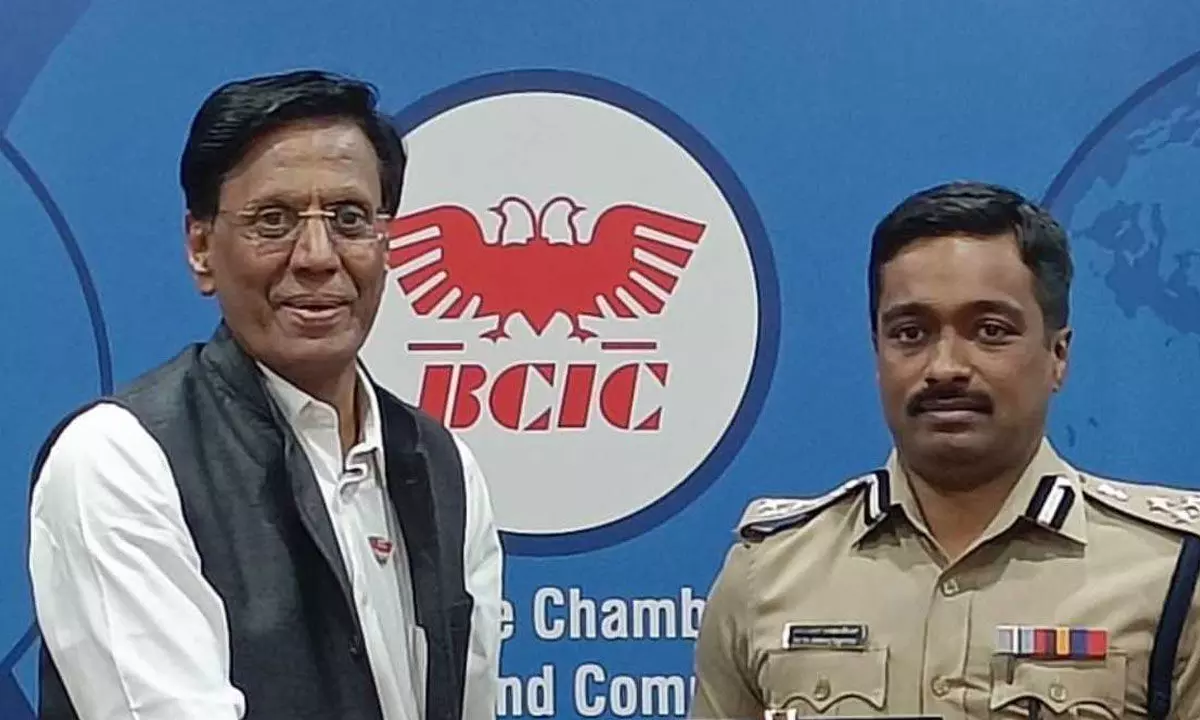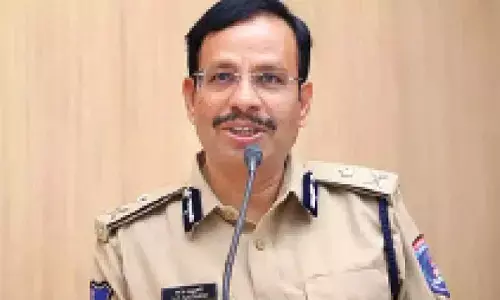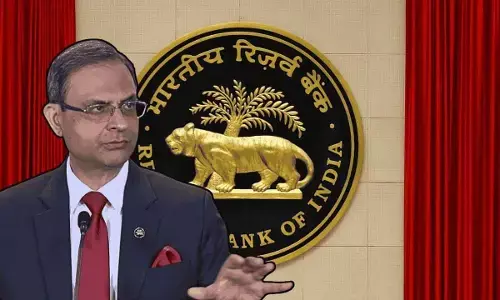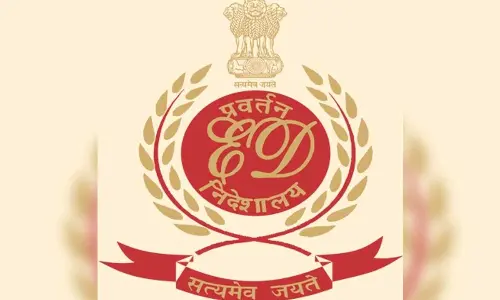Bengaluru: Police to focus more on regulation and traffic management, than enforcement

Bengaluru: Police to focus more on regulation and traffic management, than enforcement
Plans afoot to increase the number of traffic signals in Bengaluru from 363 to 500 over the next 2 to 3 years and implement an ‘Adaptive Traffic Controlling System’ in three phases
Bengaluru: 'Adaptive Traffic Controlling System' and AI based Contactless Interventions will be the future of traffic management in the city, enabling Bengaluru Traffic Police to focus more on regulation and traffic management, rather than enforcement. This was announced at an interactive session on Road Safety in the city that was held by Bangalore Chamber of Industry and Commerce (BCIC) in association with Bidadi Industries Association (BIA)and M N Anucheth, Joint Commissioner of Police (Traffic), Bengaluru.
Expert panellists opined that traffic decongestion, community-based programs to drive behavioural changes, improved public transport and scientific interventions and technology in traffic management and road design is key to reducing fatalities and injuries due to traffic in the city.
Speaking at the interactive session, Joint Commissioner of Police (Traffic), Bengaluru City, M N Anucheth said "We are in the process of setting up contactless interventions for traffic management, and the department has set up an intelligent traffic management system in Bengaluru with violation detection cameras and Automatic Number Plate Recognition (ANPR) Cameras. This will enable the traffic police to concentrate more on regulation and traffic management to ensure a smoother flow of traffic rather than enforcement. We also plan to increase the number of traffic signals in Bengaluru from 363 to 500 over the next 2 to 3 years and implement an 'Adaptive Traffic Controlling System' in three phases over the next three years, whereby traffic signal timings will adapt based on actual traffic demand. This will help manage the flow of traffic in a scientific manner. For instance, if there is an ambulance on the road, it will get an automatic green corridor. Going forward the focus of Bengaluru traffic policy will be evidence-based, contactless interventions based on AI."
M N Anucheth said, "Road safety has 4 components- Engineering & Technological Interventions, Enforcement, Education and Awareness and Emergency response. Data suggests that road safety is a science, and technology interventions as opposed to increased enforcement and traffic fines is far more effective in managing traffic. In Bengaluru only 47% of the population use public transport which is much lower than other metros in the country. The city has 1.07 crores vehicles on the road which is the second largest for any city in India and the current vehicle to population ratio is 1:1.3. Ideally we need less vehicles with respect to people on the road, and this can only come about with increased use of public transport."
"In order to reduce fatalities and deaths on our roads it is important to move towards collaborative research and increased safety standards along with awareness on the use of these safety standards. It's important to have long term community-based programs that lead to behavioural changes along with education of policy makers and professionals in terms of thinking of road safety as a public health issue, as road fatalities outnumber cancer or even covid deaths in the city. This will lead to a more broad-based approach to enhancing road safety, "he added.
The Senior Vice President-BCIC, Dr. S Devarajan and Sr. Vice President, TVS Motor Co. Ltd. offered BCIC full support to the Bangalore Traffic police in driving behavioural changes and assisting the police in conducting awareness and training programs.
The Vice President – BCIC and Director, Brigade Hospitality, Vineet Verma urged the Bangalore Traffic Police to address issues such as time bound hyper local e-commerce and food delivery that is endangering the lives of delivery personnel, safety at railway crossings which is often chaotic, unscientific speed breakers and unannounced blocking/digging up of lanes and bye-lanes that often leads to chaos and traffic congestion. The Co-Founder AntiZ Technologies, Raghavendra Krishnamurthy made a presentation on how Technologies such as gamification, virtual reality, augmented reality and AI can bring about a cultural shift in road safety.This is the first in a series of Safety Awareness Campaigns that will be held by BCIC this month to mark National Safety Month 2023.














